Prejudice, Jimi Hendrix, and Rap Music
by John Henry (August 2020)
.jpg)
Jumping Jive, Norman Lewis, 1942
Never, for the sake of peace and quiet, deny your own experience or convictions.—Dag Hammarskjold
I remember the shock and grief following Kennedy’s assassination. It stayed with me momentarily because I was only 9 years old, but I still can feel that day. A few months later I went with my Mom to see a black and white movie about JFK. She cried. We didn’t discuss these events though; I was too young and it became a short blip in my memory. The only other time I saw her weep was in the movie ‘Doctor Zhivago.’
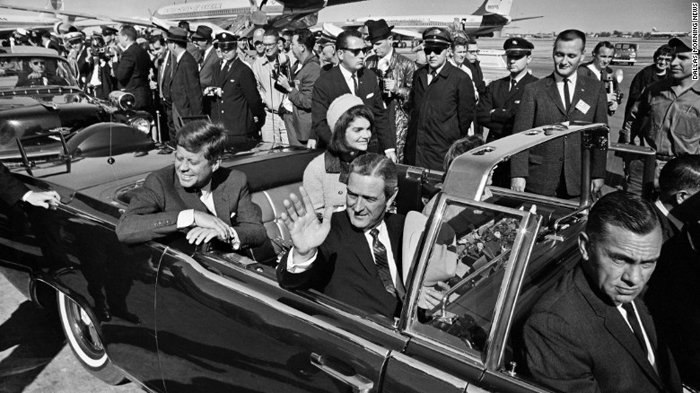
I was oblivious to the entire 60s civil rights era, and not the only one at the time. A few headlines were discussed in our current events class, but that was it. No one obsessed over the issues, none of my friends brought it up in a single conversation. No one had any arguments. No protests. We were in la-la land. The killings following JFKs were absorbed in class but not discussed at home.
We were kids of military and diplomatic missions in Izmir, Turkey. For many of the military ‘brats’ overseas in Europe and the Middle East or Far East, the turmoil on U.S. soil was barely on the radar and did not affect our day to day lives. There were no TVs blaring the confrontations and heavy coverage from the United States. There was the Stars and Stripes and yes, you could purchase the NYT or WSJ, but did not buy these newspapers.
My Greek mother married my Texan father in Athens. She looked like Elizabeth Taylor. She could speak classical Greek and had a university education. Dad had 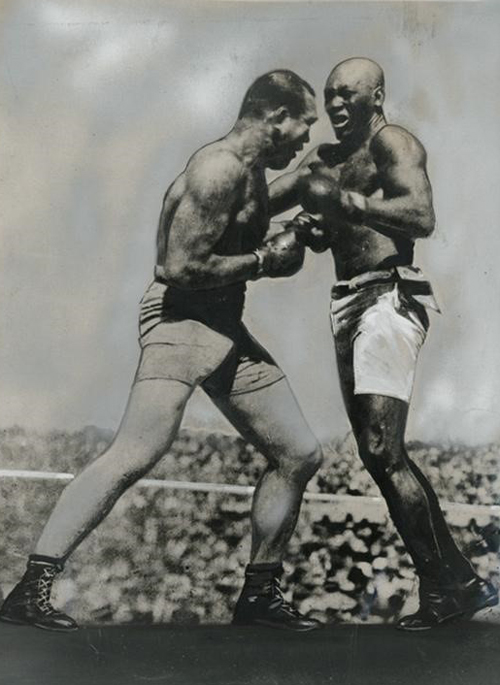 escaped the ‘hillbillies’ of his state and loved classical music and European history. He was offered a football scholarship and before he could finish college an agent wooed him to Chicago. He boxed professionally before joining the Air Force. It is rumored he was being groomed to be the next “Great White Hope.” Which is quite ironic, given the point of this essay! (That is actually Jack Johnson vs. Jim Jeffries at right.)
escaped the ‘hillbillies’ of his state and loved classical music and European history. He was offered a football scholarship and before he could finish college an agent wooed him to Chicago. He boxed professionally before joining the Air Force. It is rumored he was being groomed to be the next “Great White Hope.” Which is quite ironic, given the point of this essay! (That is actually Jack Johnson vs. Jim Jeffries at right.)
I was born in Wiesbaden, Germany and my brother in Ankara, Turkey. I had a good friend whose mother was French, married to an American G.I. I was flirty with Joan Gross in high school. She had Jewish heritage, but it had never occurred to me at the time and only until many years later it hit me. In fact, no one cared about anyone’s ancestry, race, or religion. We were just kids growing up in a strange land following a general ‘American’ set of customs and ideology.
There were absolutely no racial incidents. One of my good friends was black. I didn’t categorize him as ‘my black friend’. He was simply John Cooper, a very cool guy who loved the same music I did. We were all into music—my close friends. Yes, there were drugs available. (You could go into any Turkish pharmacy and get whatever you wanted without a prescription. There were illegal drugs available too. But just a few were into that.)
We were not separated (or identified) by race in any way. We had the typical high school cliques: the leather jacket cycle type, the druggies, the valedictorian brainers, the jocks, the cheerleaders, the music crowd, a few hippie types. That was it. What we did made us different—how we dressed perhaps. What we were interested in made us different and separated us from each other. It was not race. There was zero prejudice as far as I could tell or recall. Families rotated in and out of town. When a newcomer joined us, they added just a bit of spice to the mix but everything tended towards homogeneity.
One day Mom was in Dad’s office downtown where he managed lodging, permanent and temporary, to a host of military service people and the diplomatic corps.
As this was retold to me a few years later, my mother was visiting with Dad and two young NATO GIs came in and Mom said something like: “You two boys will have a lovely time here”. Apparently, Dad almost froze and quickly changed the conversation. Mom did not realize, being Greek, that the phrase was often taken as a prejudicial slam.
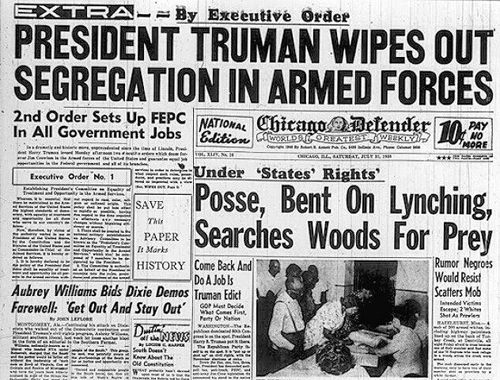 On July 26, 1948 President Truman issued an executive order abolishing discrimination in the U.S. Armed Forces “on the basis of race, color, religion or national origin.” The Korean war, which followed from 1950 to 1953, was the first war that led to the end of segregation in the military. The officers, especially, were on the lookout for any kind of discrimination which was dealt with by extreme discipline and demotion or even expulsion.
On July 26, 1948 President Truman issued an executive order abolishing discrimination in the U.S. Armed Forces “on the basis of race, color, religion or national origin.” The Korean war, which followed from 1950 to 1953, was the first war that led to the end of segregation in the military. The officers, especially, were on the lookout for any kind of discrimination which was dealt with by extreme discipline and demotion or even expulsion.
The environment was basically controlled to some degree. Whatever happened in the ranks rarely if ever spilled into our ‘civilian’ lives. We were color blind. So we lived basically oblivious to the vagaries of the issues of the day as experienced stateside. Even economic differences seemed slight. There were local and base movie theaters. We had comic books, bikes, music, a Teen Club, and a great cultural experience.
If we made fun of anyone, it was the local Turks who would chide us with “Hey, Johnny what is your name, etc.” And we had to respect the host country, having to learn rudimentary Turkish and culture/manners. Turkey was wonderful, it was exhilarating, full of history, mysticism, and the people were special. We made several friends and our landlords were Greek Turks, so Mom was thrilled. The Turks did not even treat my mother badly, even though there was bad blood many years before. The friends we had all loved her. She even became a matchmaker between two Turkish families.
Americans were accepted in big cities and small towns and there was no mention of ‘Jihad’ at all. My Dad’s main assistant was a Jewish Turk. There were Italians who had settled there, some French, and the many tourists were typically from northern Europe. We went on many weekend journeys investigating ancient Greek and Roman settlements. The food was amazing, there was negligible social strife. Life was rather perfect.
This prejudice-free mentality carried on with me into my college years, where there were no racial discriminatory situations that I can recall. Oddly, as I started studying the Bible and attending a local church, I found that the professors generally had no interest in religion and tended to mock it. This was a minor blow to me, but I carried on. After graduating I took some summer courses in Florence, Alabama. I found an interesting fellow who liked to play guitar and sing. I recall him having a Jewish background. I also met a genuinely nice black student who I asked to go downtown for a lunch. He was not keen on that idea and I scoffed when he brought up the idea of southern discrimination. I urged him to join me and when we started walking down to the restaurant, I sensed his tense demeanor. The moment we walked into the venue, I finally felt that unspoken terror of discrimination. The place went silent, the smiles gone from everyone’s faces, and then the stares. We sat down, quietly talked and then left unbadgered. I will never forget that day.
 Due to the musical sponging in Turkey during high school, I started playing guitar. There were many amazing bands from ’65 to about ’72—the best, in my mind, for many years. No, to date! Carlos Santana was Hispanic, Bob Dylan Jewish, Eric Clapton—British ‘white,’ and Jimi Hendrix ‘Afro-American.’ No one at the time ever spoke about any of these people by their racial or ethnic origins. It was totally ridiculous. These people were amazing and great only because of their music. I did not seek out ‘Greek-American’ music. No one thought of themselves in these terms. At the time it absolutely made no sense. You did not ‘identify’ with a person due to their race or gender, or origin, etc.
Due to the musical sponging in Turkey during high school, I started playing guitar. There were many amazing bands from ’65 to about ’72—the best, in my mind, for many years. No, to date! Carlos Santana was Hispanic, Bob Dylan Jewish, Eric Clapton—British ‘white,’ and Jimi Hendrix ‘Afro-American.’ No one at the time ever spoke about any of these people by their racial or ethnic origins. It was totally ridiculous. These people were amazing and great only because of their music. I did not seek out ‘Greek-American’ music. No one thought of themselves in these terms. At the time it absolutely made no sense. You did not ‘identify’ with a person due to their race or gender, or origin, etc.
There were no hyphenated Americans in our world.
If you liked rhythm and blues or Motown, yes, there were experts in these genres. You did not seek them because of their color or political motivations. Eventually, the lyrics of the times seeped through but interestingly  enough, we really did not listen to one group or another because of their politics or race. As I stated, the racial divide of the 60s did not come through into our minds of mush. It was mostly sensational, raw, rebellious rock. It was about the overall vibe, the hooks, the lead solos, the harmonies, the musicianship, the compositions.
enough, we really did not listen to one group or another because of their politics or race. As I stated, the racial divide of the 60s did not come through into our minds of mush. It was mostly sensational, raw, rebellious rock. It was about the overall vibe, the hooks, the lead solos, the harmonies, the musicianship, the compositions.
It turns out that Jimi Hendrix had a short stint as a paratrooper in the Air Force. He got out after an ankle injury. He made many friends in the service. He also experienced little or no discrimination in the military. Unfortunately, other black people did not like him and shunned him because he played primarily to white audiences. I can understand how this must have shaken him, but he had a good mental foundation and played whatever HE wanted to play and whatever came out of his head and hands. He had very few politically charged compositions. It was about love and ethereal subjects and an obsession with the guitar which he took to the edge and back.
I liked Jimi not because of his politics; he was not a ‘black artist’ to me or for most of his fans. He was an amazing human being. There was no one like him on the planet. It was always just about the music for me—his music and guitar wizardry.
Now we have awards given out not only to genres of music, but in the case of African Americans, based on color, and I am sure quick to come: sexual identity. My two sons played basketball in high school and had several black friends. I have to say ‘black’ and it just seems strange now to put it that way, but this is where we have landed. Two of them were just a joy to have over. One is now a policeman, the other is a merchant marine. We all stay in touch. We attended the wedding of one. We were the only white couple at the ceremony and left quickly.
At the time, rap was the main thing associated with basketball. Why? The NBA was composed of mostly players who were black Americans. Those players did not listen to the Doobie Brothers. And my kids started listening to rap. I never liked rap and I let them know it. Later in life they stopped listening to it. They did not become NBA stars.
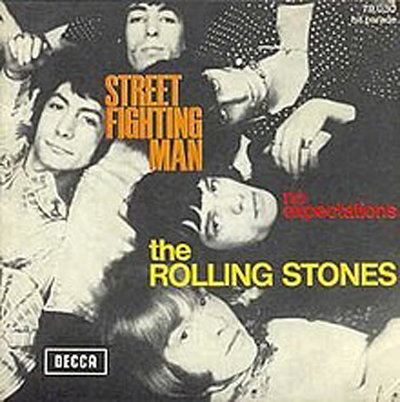 Rap music is highly politicized. It slams police and denigrates women. I suppose rock ‘n roll did some of the same. Rap and its related cousin hip-hop have spawned many derivatives, most of which I cannot name. However, they have been assimilated into ‘white’ culture as well, especially by the young. This music informs political movements more than probably any other in history. (Yes, Hitler used Wagner for his political objectives, and Beethoven’s Fifth was the Allied response.) We all knew rock, hard rock, metal, etc. had dark moments but these in the end were simply not going to permanently affect society. The Stones were ‘street fightin’ guys and against the King. Even ‘kill him and all his servants.’ Well, not really. Elizabeth II knighted Mick Jagger.
Rap music is highly politicized. It slams police and denigrates women. I suppose rock ‘n roll did some of the same. Rap and its related cousin hip-hop have spawned many derivatives, most of which I cannot name. However, they have been assimilated into ‘white’ culture as well, especially by the young. This music informs political movements more than probably any other in history. (Yes, Hitler used Wagner for his political objectives, and Beethoven’s Fifth was the Allied response.) We all knew rock, hard rock, metal, etc. had dark moments but these in the end were simply not going to permanently affect society. The Stones were ‘street fightin’ guys and against the King. Even ‘kill him and all his servants.’ Well, not really. Elizabeth II knighted Mick Jagger.
Yes, the Goth movement resulted in some odd-looking people and a few proponents were responsible for heinous crimes. No one acts out in ‘real life’ the music of their teens in their twenties or thirties. It is a Hollywood fable. Yes, James Dean was a rebel and there were bikers, beatniks and hippies. Everyone grew up and became normal working citizens after that nonsense.
This is not the case for rap and its progeny. This music supports and amplifies much of the chaos we see today. Its seeping into ‘white’ high school and college students has infected the minds of all. Gangsta rap is violently against policing and promotes even worse. It is defended by its proponents as vital because it exposes and criticizes “a political system that never intends to deal with inner city urban chaos . . . ” —Sister Souljah
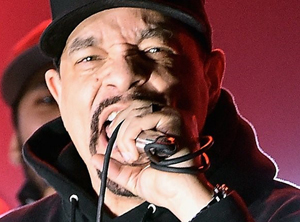 Of course there is no white alternative or answer to Gangsta rap—and Ice T is not going to receive the Presidential Medal of Freedom anytime soon. Hendrix was accused of culturally mis-appropriating his black roots to appeal to whites. What an insane world we have now! Eminem, white, raps about Detroit street fights. Ironically, he is the highest selling hip hop artist of all time and the first rapper to receive an Oscar.
Of course there is no white alternative or answer to Gangsta rap—and Ice T is not going to receive the Presidential Medal of Freedom anytime soon. Hendrix was accused of culturally mis-appropriating his black roots to appeal to whites. What an insane world we have now! Eminem, white, raps about Detroit street fights. Ironically, he is the highest selling hip hop artist of all time and the first rapper to receive an Oscar.
The music of the street, as I have stated, pervades not only black but the white youth conscience. It ties in with the BLM movement and thus supports Marxist objectives. I cannot recall any blues, Motown, disco, heavy metal, rock, or other genre supporting such a debilitating and anti-American movement or any political slant as strongly as rap and hip-hop. Rock music though, has been attributed to “subverting the political order of the Soviet Union and its satellites”.—Wikipedia. Western fashion trends were copied by the stilyagi, a ‘50s youth counterculture movement in the Soviet Union. The Beatles and others were invited in succeeding years. Finally, Bruce Springsteen played in East Berlin in July 1988. In 1989 the Berlin wall came down.
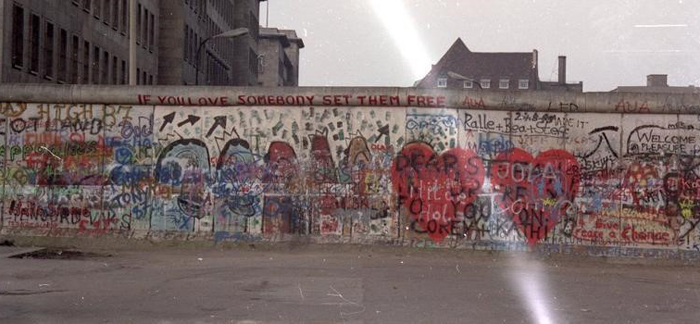
Fortunately for many of us ‘military brats’, we can take the insanity posted on the television and process it being such. There are millions of us and millions more of our children who have been reared as anti-discriminatory as possible. Our young grandchildren now must face some crazy times ahead.
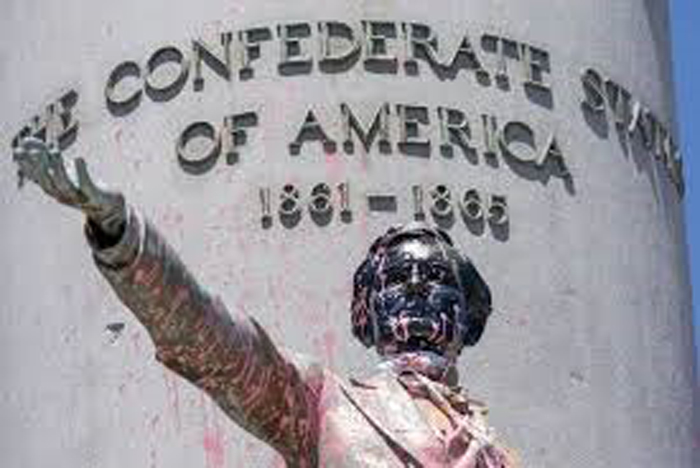 Social media has allowed venting of the current issues in a very nasty manner and my former friends from high school have taken extreme positions. The reality of the current leftist narrative is evident as the propaganda is acted out in real time for all to see. What are people saying, and what are their physical actions? Their true intentions are playing out before our eyes on the tube every night. Who exactly is peacefully protesting, who is looting, who is burning buildings? Why on earth are statues being pulled down and defaced?
Social media has allowed venting of the current issues in a very nasty manner and my former friends from high school have taken extreme positions. The reality of the current leftist narrative is evident as the propaganda is acted out in real time for all to see. What are people saying, and what are their physical actions? Their true intentions are playing out before our eyes on the tube every night. Who exactly is peacefully protesting, who is looting, who is burning buildings? Why on earth are statues being pulled down and defaced?
Those who were never prejudiced, I would say the boomer generation as a whole, are now feeling the heat of overdone mantras, crude and deadly dialogue, repeated street violence, and unwarranted (by the facts) hatred of the police. The sons and daughters of ‘The Greatest Generation’ are now left to sensibly process the current political angst. We can all see who the culprits and perpetrators are, what is their skin color, what flag it is they wave. Hendrix wailed that he wanted to let his ‘freak flag fly.’ He was not calling out for an overturned set of American values—not a “Reimagining of America.” He simply wanted to be left alone to ‘do his thing’—peacefully.
Now, if 6 turned up to be 9,
I don’t mind, I don’t mind.
If all the hippies cut off all their hair,
I don’t care, I don’t care.
Dig, cause I got my own world to live through
And I ain’t gonna copy you.
White-collar conservatives flashing down the street
Pointing their plastic finger at me.
Pretty soon their kind will drop and die,
But I’m gonna wave my freak flag high . . . High!
I never hated anyone until someone wronged me. I realized I had to control my thinking so that I did not despise an entire group or race of people due to one person’s aggression, be it social, economic, or political. Fortunately, we are a fair people and a large country. Even if millions are acting foolishly on the streets, there is a much larger silent majority who will not accept or tolerate a blind, mistaken, misdirected, and impossible to achieve objective: the overthrow of our country, its standards, its cultural history, its unshaken belief in a Constitution that promotes equality and the pursuit of happiness in a land directed by law and order.
«Previous Article Table of Contents Next Article»
__________________________________
Commercial Web Residential Web 7491 Conroy Road, Orlando, Florida 32835 407.421.6647
Follow NER on Twitter @NERIconoclast